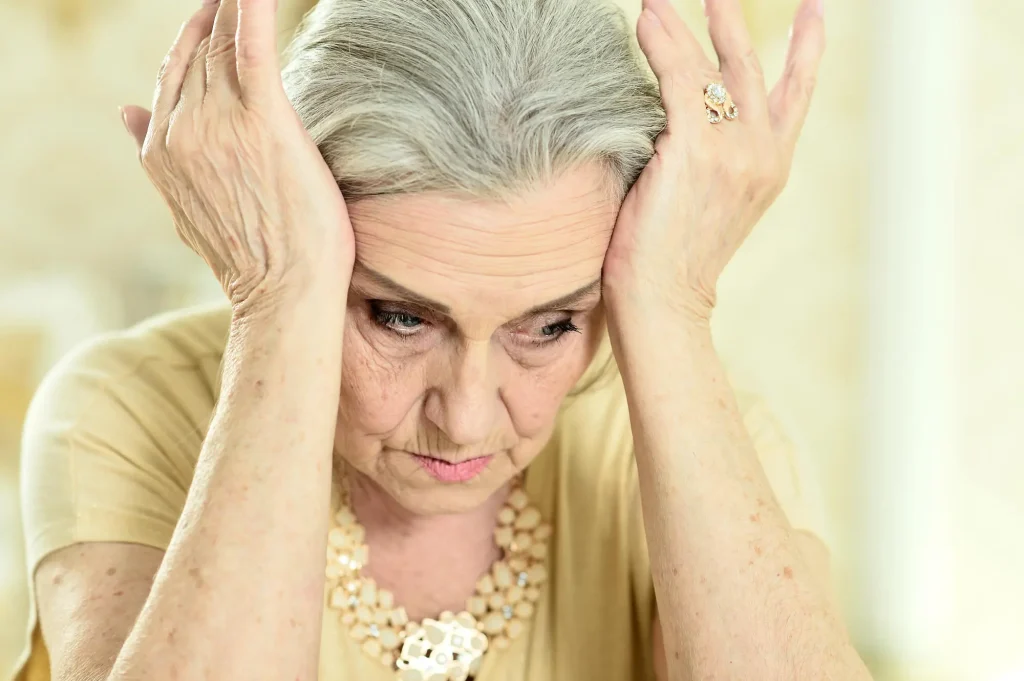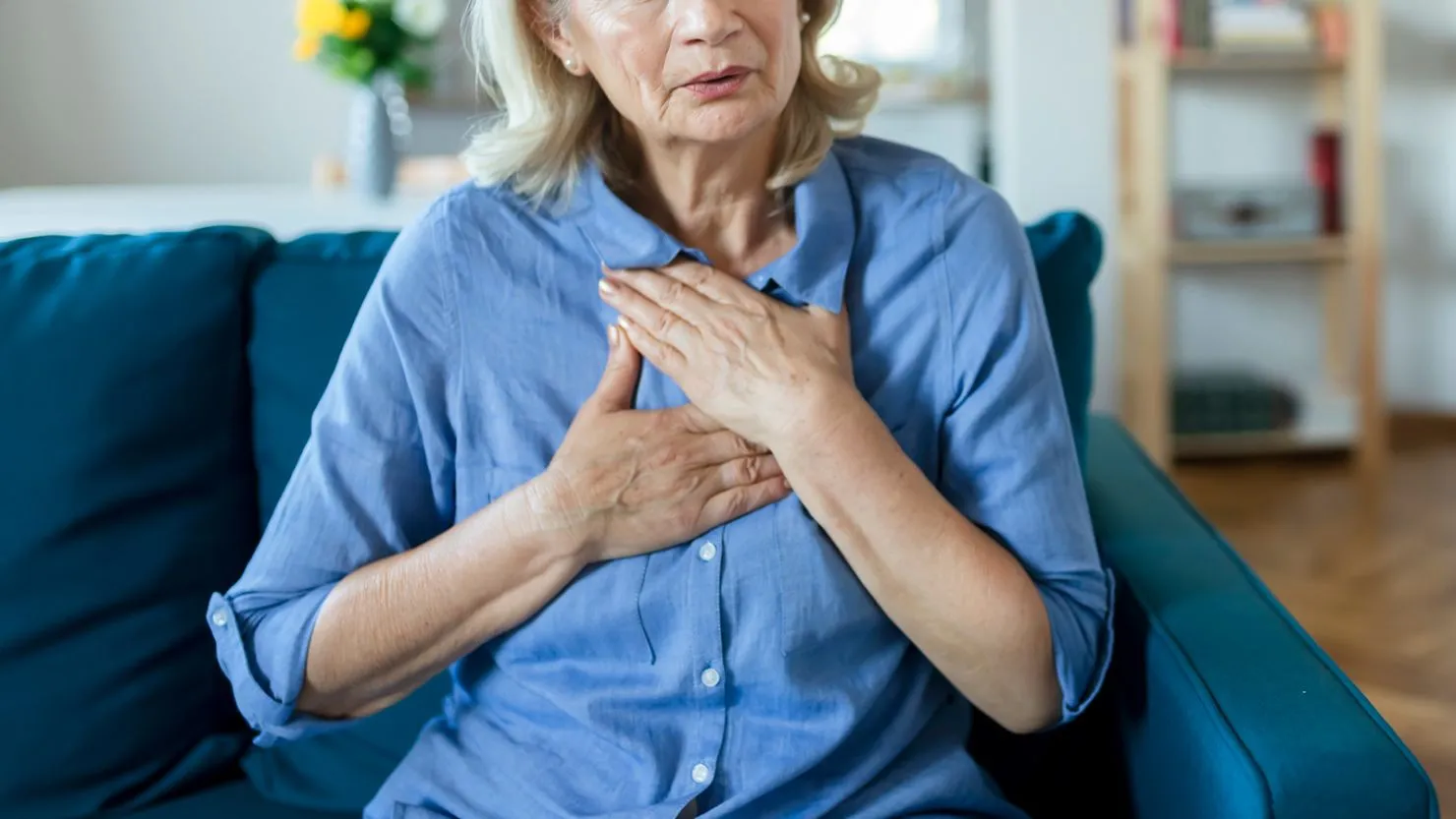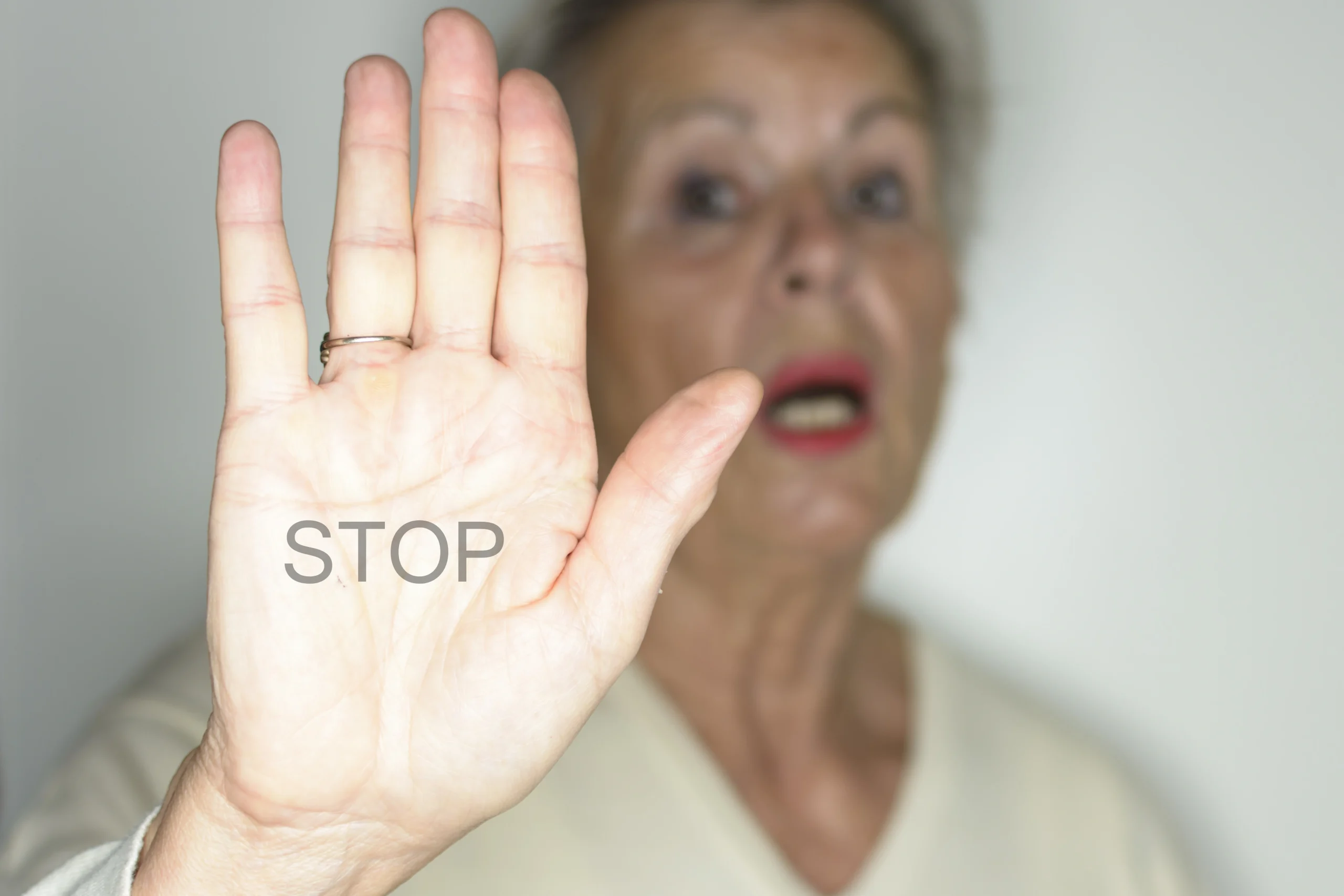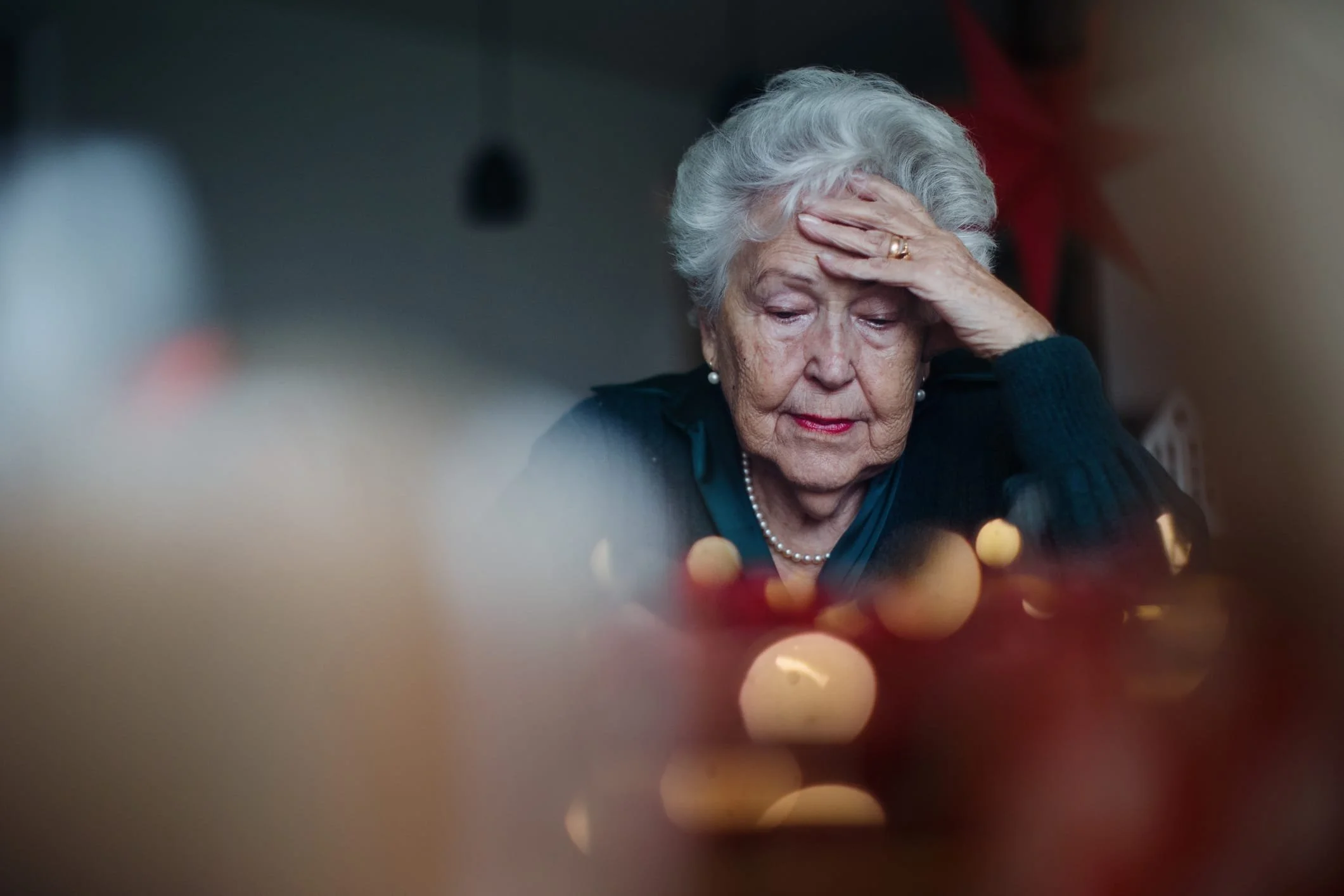
Stress in the Elderly + Causes and Tips for Managing
The topic of this article from humanhealthmag is the symptoms and treatment of stress in the elderly. Methods for calming the elderly against anxiety and stress can be used by the family and the elderly caregiver. As you know, stress and lack of peace in the elderly have many reasons, which can include not having a spouse, economic concerns, physical illnesses and lack of dependence on those around them.
Stress affects most elderly people both physically and psychologically. For this reason, in this article, before examining methods for achieving peace in the elderly, we intend to identify the signs of stress in the elderly and techniques to help them achieve peace. So stay with us until the end of this article.
Why do Seniors Experience Stress?
Stress in the elderly has various causes, including changes in personal lifestyle, entering retirement, caring for a sick spouse, death of loved ones, relatives and close friends, decreased physical abilities and strength, and the presence of chronic and debilitating diseases, caring for grandchildren, concerns about independent living and fear of being alone, concerns about rejection or living in a nursing home, and lack of social support groups, are among the main causes of stress in the elderly. If the cause of stress is loneliness, this problem can be resolved with choosing caregiver for elderly parents. Stress in old age has symptoms that include the following:
- Heart palpitations
- Cold hands and feet
- Dark circles under the eyes
- Moisture in the body
- Increased breathing rate
- Constipation and sometimes diarrhea
- Teeth grinding together
- Increased blood pressure in the elderly
- Nausea, bloating, vomiting, heartburn
- Feeling weak and tired in the elderly
- Tension headaches in the elderly
- Hand tremors and muscle pain in the elderly
- Digestive problems in the elderly, such as loss of appetite

Symptoms of Stress in the Elderly
What are the signs that a senior is stressed? Chronic muscle pain, headaches, chest pain, sleep problems, weight gain or loss, and stomach upset are common symptoms of stress in the elderly. While stress in some elderly people will lead to more complex problems such as depression or not performing daily activities. When an elderly person is stressed, they need care, this help can be received through friends or relatives or the elderly’s nurse.
It is difficult to comment on the source of stress in the elderly, do not forget to talk to the elderly about the reasons for their stress. Lack of peace and stress in the elderly has many reasons, which can include the absence of a spouse, financial worries, health problems, and lack of dependence in the elderly. Of course, this problem can be managed by using stress reduction for elderly methods. The 8 main causes of stress in the elderly are:
- Caring for grandchildren
- Retirement and the financial situation at that time
- Death of relatives, loved ones, and close friends
- Worries about being abandoned or living in a nursing home
- Decreased physical abilities and the presence of chronic and disabling diseases
- Caring for a sick spouse can cause stress and depression in the elderly.
- Worrying about living independently and fearing being alone is very difficult for the elderly and causes stress and despair in them.
- Any new change in life, especially a change in lifestyle or where you and your family live, can bring stress to the elderly.
Stress Management in the Elderly
Praying is very effective in calming the heart and mind and Stress in the elderly. The stressors of old age are of the type of loss and irreversible. When the number of these anxieties in the elderly is high and their distance is reduced and physical strength is also depleted, its destructive effects increase. For this reason, the elderly should have a healthy diet and participate in activities that interest them. Also, the elderly’s family and the elderly’s nurse can encourage the elderly to maintain and expand their social relationships. Observing this simple point can also have a significant impact on the lives of the elderly.
In addition, adequate sleep at night can remove the pressure of stress from the elderly. To deal with anxiety in the elderly, we must talk to them about their feelings and concerns, treat them in a way that can increase their self-confidence and encourage the elderly to use assistive devices such as canes, glasses, hearing aids, if necessary, and tell them that using these devices is not a sign of weakness in them. Maintain their connection with their family, keep them busy at home with things like planting vegetables, flowers, and cooking.

Diagnosis of Stress and Anxiety in the Elderly
The best and easiest way to diagnose Stress in the Elderly is to use a mental health examination performed by an experienced psychologist. By examining the causes and symptoms of anxiety in the elderly, the counselor determines the severity of the anxiety and decides whether it needs to be referred to a specialist for more serious treatment.
It is better for the elderly to know that anxiety is a common and treatable phenomenon and the sooner it is diagnosed, the easier it is to treat. Common symptoms of anxiety in the elderly include:
- Body tremors
- Difficulty breathing
- Dizziness
- Heaviness in the head
- Excessive sweating
- Nausea
- Digestive problems
- Chest pain
- Headache
- Vision problems
- Muscle tension or pain
- Fatigue
- Confusion
- Irrational thoughts
- Forgetfulness
- Fearful thoughts and nightmares
- Irritability Avoidance of activities, places, people
- Changes in weight, appetite or eating habits
The Effects of Stress on the Elderly
Although it is difficult to determine exactly what problems are caused by the effects of stress in the elderly, there are undoubtedly some that have been identified as being related to stressors. These include:
- Weakened immune system: Everyone has probably experienced the fact that they are more likely to get sick when they are stressed. Stress is known to suppress the immune system in the body and makes the elderly more susceptible to disease.
- The effects of stress on the elderly and heart problems: Stress can stimulate the secretion of adrenaline, which increases blood pressure and heart rate in the elderly. But the relationship between stress and heart disease goes beyond measurable factors. Stress can cause elderly people to seek relief and reduce the effects of stress through activities such as drinking alcohol, overeating, or using drugs. Each of these activities can damage blood vessels and increase the risk of heart disease.
- Vision problems and hearing loss: The constant production of adrenaline, a stress hormone, can constrict blood vessels and lead to temporary loss of hearing and vision.
- Digestive disorders: Stress can literally damage the stomach. This problem occurs when stress activates the central nervous system of the elderly in response to a stressor. The central nervous system can reduce blood flow and cause the muscles of the digestive tract to contract and reduce the secretions necessary for digestion. Chronic or severe stress can lead to serious digestive problems such as irritable bowel syndrome and peptic ulcers.
- Dental problems: Dental problems increase with age, making the elderly more susceptible to tooth fractures and serious dental problems. Stress can cause the elderly to clench their jaw continuously, which can cause unwanted cracks and fractures in the elderly’s teeth.

4 Techniques to Control Stress in Seniors
To control stress in the elderly, you can use the following 4 methods:
1- Muscle Relaxation
- This technique encourages the elderly to learn how to contract or squeeze their muscles and then release them. This compression and release includes the main muscles, namely the shoulders, arms, fingers, legs and toes. Of course, paying attention to mental health issues in the elderly can also reduce stress in the elderly.
2- Mental Imagery
- Mental Imagery means that the elderly imagine themselves in a beautiful and favorite place doing an activity they like. For example, imagine that they are on the beach or on a mountain top or swimming in a beautiful lake.
3- Gentle Exercises
- Gentle exercises such as yoga, Pilates and tai chi and walking are popular among the elderly and allow them to strengthen their bodies while focusing on breathing techniques.
4- Listening to relaxing music
- Listening to relaxing and favorite music helps the elderly to eliminate their fear and anxiety. The sources of stress in the seniors are different from the sources of stress in young people, but this does not mean that the stress is special. Their stress can also be eliminated as easily as the stress of young people. The only problem is that this stress is detected early and eliminated in appropriate ways.
Concluding Remarks
In general, to deal with Stress in the elderly, you should talk to the elderly and their parents about their feelings and concerns, give them confidence, and encourage them to use assistive devices such as canes, glasses, and hearing aids, if needed. Maintaining contact with family, keeping them busy with household chores, and reading prayers, supplications, and the Quran are other ways to prevent anxiety. It is best to take stress away from the elderly and encourage them to take care of their mental and physical health as much as possible.
Also, having a healthy diet, exercising, or participating in activities that they enjoy will help them control their stress. Encourage them to maintain and expand their social relationships. In addition, getting enough sleep will help the elderly achieve peace.
Could you help us make this content even better? What do you love, and what can we improve? Share your thoughts below, feedback is the key to creating better content for YOU. If you also have an experience in this regard, please share it with us and others.

Frequently Asked Questions
Why is Stress More Severe in Older Adults?
Due to chronic diseases or compromised health, special circumstances, and financial insecurity, loneliness and social isolation are effective in exacerbating stress in the elderly.
What is the Most Common Cause of Stress in the Seniors?
Since older adults face frequent and constant changes, they are more anxious than other people.
How to Control and Manage Stress in Old Age?
Get regular physical activity. If you are unable to do certain types of exercises that improve balance, do them under the supervision of a doctor. Many other types of physical activity improve your health and reduce stress.
How to Deal With the Stress of Aging?
Having a healthy diet, regular and controlled exercise, managing stress, and adjusting your sleep schedule can reduce your biological age.
